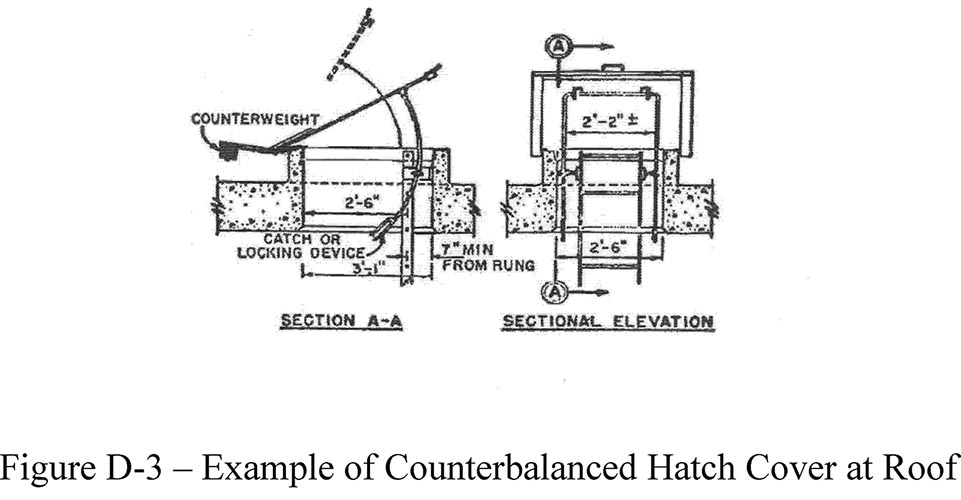1926 1051 a 2 a double cleated ladder or two or more separate ladders shall be provided when ladders are the only mean of access or exit from a working area for 25 or more employees or when a ladder is to serve simultaneous two way traffic.
Osha regulations for roof access ladders.
Per osha 1910 23 d 4 the side rails of through or sidestep ladders must extend 42 inches above the top of the access level or landing platform served by the ladder.
If the parapet is continuous the access level shall be the top of the parapet.
Apart from the above requirements you ask why osha did not require the use of personal fall arrest equipment whenever an employee is working 15 feet or higher on a ladder you do not specify whether you are asking this with.
You can choose any pfas provided it meets the osha requirements in section 1926 502 d.
When a ladder safety system is provided the maximum clearance between side rails of the extension must not exceed 36 inches 91 cm.
Osha requires that this distance be no greater than 3 5 feet 29 cfr 1926 502 d 16 iv but it may be less for some pfas equipment.
Under the new regulations a ladder over 24 feet high will require a personal fall arrest system or ladder safety system.
Parapet ladders must have an access level at the roof if the parapet is cut to permit passage through it.
1910 25 b 2 vertical clearance above any stair tread to any overhead obstruction is at least 6 feet 8 inches 203 cm as measured from the leading edge of the tread.
For a parapet ladder the access level shall be the roof if the parapet is cut to permit passage through the parapet.
If you carefully examine the new ruling you ll note that osha 1910 28 b 9 requires general industry employers to provide fall protection on fixed ladders more than 24 above a lower level.
For through ladders the steps or rungs are omitted from the extensions and the side rails are flared to provide not less than 24 inches 61cm and not more than 30 inches 76 cm of clearance.
Side rails of through or side step fixed ladders must extend 42 inches 1 1 m above the top level or landing platform served by the ladder.
The side rails of through or side step fixed ladders shall extend 42 inches 1 1 m above the top of the access level or landing platform served by the ladder.
How far the d ring shifts and the harness stretches when it supports the full weight of a fallen worker including the weight of tool belts and other attached equipment or tools.
24 inches this extension above the access level must be at least 24 inches wide to accommodate the width of climber s body and not more than 30 inches of clearance allowing the climber to easily reach both hand rails.
Osha s decision not to require the use of personal fall arrest systems in other situations while working on ladders.
This new requirement is important for a number of reasons.










